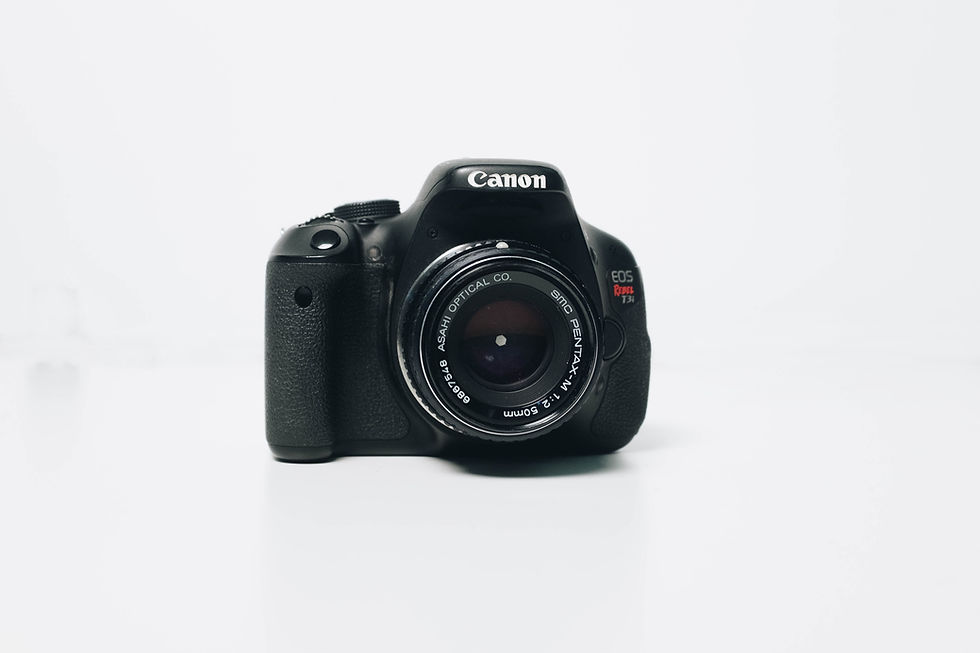Introduction
Choosing a camera is a big decision, and there are lots of factors to consider. This guide will help you understand the different options available so that you can make an informed choice on which camera works best for your needs!

Think about your subjects
As you begin to consider what kind of camera you want, think about your subjects. What do you want to take pictures of? Are they people or places, animals or objects? Do you plan on taking a lot of photos, or are you looking for something that can be used occasionally on trips and vacations. If the latter is true, then an action camera might be perfect for your needs.
If image quality is important to you--and there's no reason why it shouldn't be--then consider investing in a DSLR or mirrorless camera with interchangeable lenses if possible. These types offer great flexibility when it comes time for editing your images because they allow users more control over things like aperture (the size of the opening through which light passes) and shutter speed (how long light hits film).
Hobby or professional?
One of the first things to consider is what you are going to use your camera for. If you are a professional, then it will be necessary that your camera has certain features and specifications that can help in taking good pictures.
If on the other hand, you are just a hobbyist and want to capture memories through photography then there are many options available in the market today at affordable prices too.
What is your price range?
The next step is to determine your price range. You can get a good camera for less than $1000, but the best cameras are often several thousand dollars or more. If you're on a budget, look at cameras under $500; these models usually offer fewer features and require more skill from the photographer (as well as more post-processing time), but they can still produce excellent results.
If money isn't an issue for you and you want to invest in a top-end model that will give professional photographers more freedom w
hen shooting video and still images alike--and allow them to take advantage of all their lenses--then go ahead! There's nothing wrong with wanting the best gear possible; just make sure it makes sense within the context of what matters most: getting those shots off without wasting time worrying about technical details like setting up lights or adjusting exposure settings manually while trying not fall off rocks while hiking through nature's beauty spots."
Kit or buy it piece by piece?
If you're new to photography and want to start with a camera that comes with everything you need, then buying a kit is probably your best bet. But if you already have some experience with photography and know what kind of equipment works best for your needs (or if you simply don't like having too much stuff), then buying a body and lenses separately may be better suited for your needs.
There are advantages and disadvantages
of each option:
Buying a kit allows for more flexibility in terms of how much money is spent upfront on accessories like lenses, flashes, tripods etc., which can add up quickly over time if purchased individually. It also gives users access to accessories at different price points than those offered by manufacturers who sell only complete systems (i.e., bodies + lenses). This allows photographers who prefer certain brands or types of lenses--or who simply cannot afford them all at once--to buy only those pieces they need now while leaving room in their budget for future purchases later down the line when needed..
Availability
How many lenses, accessories and support options are available?
Can you get your camera repaired locally? If not, what is the procedure for sending it back to the manufacturer for repair?
What training options exist in your area; do they include workshops or training courses that cover specific models of equipment from different manufacturers?
Does your area have rental facilities where you can rent a wide variety of cameras, lenses and other photographic equipment on an hourly basis (often at very reasonable rates).
Conclusion
Once you've decided on your subject and bud
get, it's time to start shopping. There are many options available, but not all of them are right for you. It's important to do your research before choosing a camera so that you can find one that fits your needs perfectly!
Comments